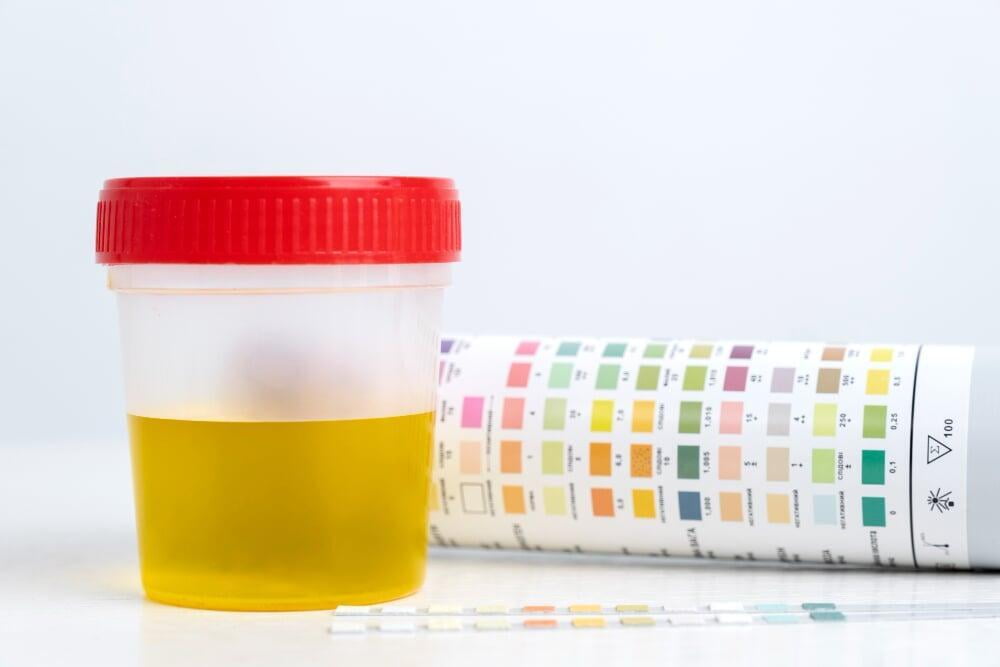
What is a DOT Drug Test?
A DOT Drug Test is conducted by the Department of Transportation (DOT) for employees in safety-sensitive positions mainly drivers. A DOT drug test is performed for the safety of the public from potential mishaps that occur due to errors by employees under the influence of alcohol or drug substances. Generally, a DOT drug test is a standard 5-panel drug test but can be updated based on the needs.
What does a DOT Drug Test test for?
- Marijuana (THC)
- Cocaine (COC)
- Amphetamines (AMP)
- Opiates (OPI)
- Phencyclidine (PCP)
Who is Required to Take a DOT Drug Test?
- Air Traffic Controllers
- Aircraft Dispatchers
- Airline Flight Crew Members
- Airline Pilots
- Flight Attendants
- Flight Instructors
- Flight Operations Control Specialists
- Bus Drivers
- Commercial Truck Drivers
- Pipeline Materials Emergency Responders
- Pipeline Materials Maintenance Workers
- Pipeline Materials Operators
- Train Conductors
- Train Dispatchers
- Train Engineers
- Train Operators
- Train Signalmen
- Train Utility Employees
- U.S. Coast Guard service members
DOT Drug test for CDL
Testing Procedures
DOT Drug Testing Requirements
As an employer, you need to verify certain requirements before proceeding with the candidate or an existing employee to a DOT drug test. You should follow one of these requirements for a DOT drug test:
1. Pre-employment Drug Test
Candidates who are applying for safety-sensitive jobs are required to take a pre-employment DOT drug test before starting the job. Pre-employment DOT drug test is done after a job is offered and before starting the job. It is important to pass the test to accept the job. If you fail the test, you lose the job opportunity and can re-apply based on various requirements.
2. Random Drug Testing
As an employer, you should be testing your employees on a random basis unbiasedly to make sure employees are not involved in drug abuse. Drivers with CDL are strictly checked throughout the year.
3. Post-Accident Drug Test
- Property damage only accidents that required towing in which the driver was cited
- Injury accidents that required emergency medical treatment in which the driver was cited
- Fatal accidents regardless of which driver was cited for the accident
4. Reasonable Suspicion Drug Testing
If an employee is suspected of using drugs, employers can conduct a reasonable suspicion drug testing on the concerned employee. The suspicion should be confidentially dealt with and the testing should be done privately to protect the professional and emotional health of the employee. Such employees who are under suspicion should not be allowed to drive to the testing centers.
5. Return-to-Duty and Follow-up Drug Testing
Non-DOT Drug Test
Any drug tests conducted by employers outside the DOT agencies are called non-DOT drug tests. DOT drug tests are usually more strict and regular as the risks and consequences are higher.
Differences between DOT and non-DOT Drug Tests
DOT Drug Testing Cutoff Levels
The cutoff levels for DOT drug testing based on the DOT Rules 49 CFR Part 40 Section 40.85 are as follows:
For Urine Test
| Initial Test Analyte | Initial Test Cut-off | Confirmatory Test Cut-off |
|---|---|---|
| Marijuana (THCA) | 50ng/mL | 15ng/mL |
| Cocaine Metabolites (Benzoylecgonine) | 150ng/mL | 100ng/mL |
| Codeine/Morphine | 2000ng/mL | 2000ng/mL |
| Oxycodone/Oxymorphone | 100ng/mL | 100ng/mL |
| Hydrocodone/Hydromorphone | 300ng/mL | 100ng/mL |
| 6-Acetylmorphone | 10ng/mL | 10ng/mL |
Amphetamine/Methamphetamine | 500ng/mL | 250ng/mL |
| Phencyclidine | 25ng/mL | 25ng/mL |
| MDMA/MDA | 500ng/mL | 250ng/mL |
For Oral Test
| Initial Test Analyte | Initial Test Cut-off | Confirmatory Test Cut-off |
|---|---|---|
| Marijuana (THCA) | 4ng/mL | 2 ng/mL |
| Cocaine Metabolites (Benzoylecgonine) | 15ng/mL | 8ng/mL |
| Codeine/Morphine | 30ng/mL | 15ng/mL |
| Oxycodone/Oxymorphone | 30ng/mL | 15ng/mL |
Hydrocodone/Hydromorphone | 30ng/mL | 15ng/mL |
| 6-Acetylmorphone | 4ng/mL | 2ng/mL |
| Amphetamine/Methamphetamine | 50ng/mL | 25ng/mL |
| Phencyclidine | 10ng/mL | 10ng/mL |
| MDMA/MDA | 50ng/mL | 25ng/mL |

